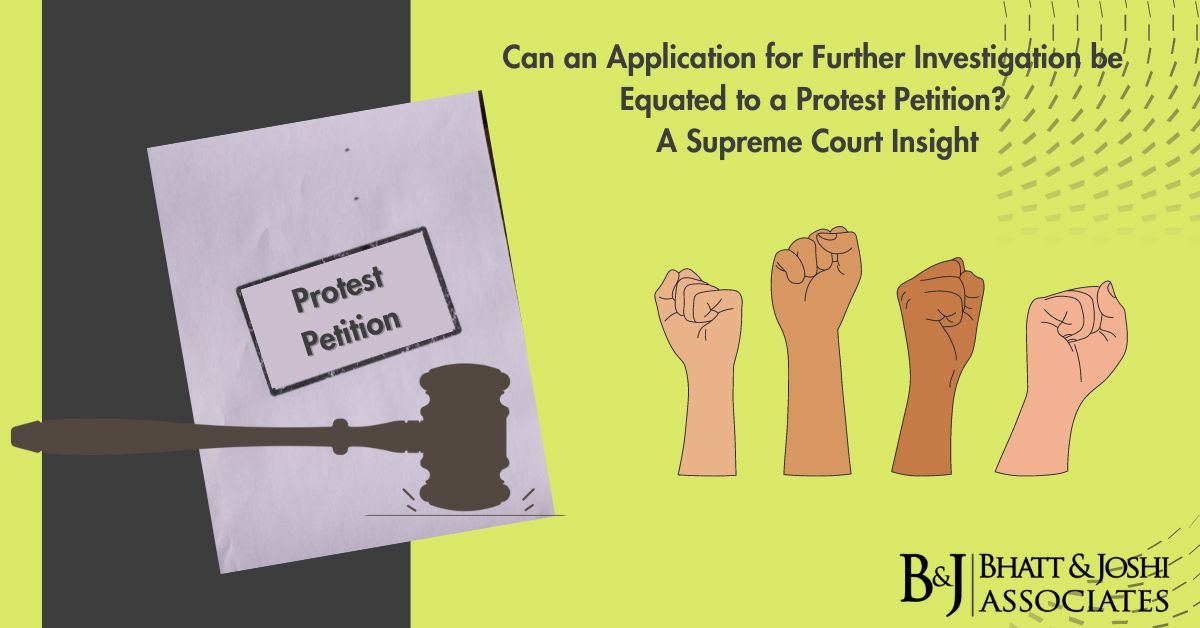Introduction
In the recent deliberations of the Supreme Court, a pivotal question emerged – can an application seeking further investigation be treated as a protest petition? This inquiry arose in the context of an appeal challenging the order of the Judicial Magistrate-II, a decision that was subsequently upheld by the Madras High Court.
Background of the Case
The appellant initiated an FIR under various sections, including Sections 417, 376, 420, 354A, 506(i) IPC, and Section 66A of the IT Act. The complex narrative unfolded against the backdrop of a relationship with respondent no.2, involving a ceremonial marriage in 2012 subsequent to the appellant’s divorce in 2006. Alleging abandonment after two pregnancies, the appellant saw a chargesheet filed under Sections 354A and 506 IPC following an investigation.
The Unconventional Move : Rethinking Further Investigation as Protest Petition
Rather than opting for a traditional Protest Petition against the dropped charges, the appellant took an unconventional route. An application under Section 173(8) of Cr.P.C. was filed, presenting evidence of marriage and cohabitation. However, the Judicial Magistrate declined to entertain this application.
High Court’s Stance
Undeterred, the appellant sought recourse in the High Court through a Criminal Revision, seeking relief under Section 173(8) of Cr.P.C. The High Court summarily dismissed the revision, contending that Section 173(8) recourse was not applicable.
Supreme Court’s Reevaluation: Further Investigation as Protest Petition
Upon reaching the apex court, the Justices expressed their perplexity at the Magistrate’s refusal to treat the application filed under Section 173(8) of Cr.P.C. as a Protest Petition. Emphasizing that technicalities in the caption should not impede the consideration of substance, the Supreme Court underscored the need to determine if further investigation is warranted. This is especially crucial for establishing prima facie elements of offenses under Sections 376, 417, and 420 of the IPC.
Key Legal Insights
- Technicalities vs. Substance
The Supreme Court’s insistence on substance over technicalities reinforces the principle that the true essence of legal matters should be prioritized over procedural intricacies. - Application of Section 173(8)
The case brings to light the nuances of Section 173(8) of Cr.P.C. and its potential as a tool for seeking further investigation, challenging the conventional path of a Protest Petition. - Ensuring Prima Facie Elements
The court’s emphasis on determining whether further investigation is necessary underscores the importance of establishing prima facie elements, ensuring a robust legal foundation.
Conclusion: Further Investigation vs. Protest Petition – Supreme Court Insights
In navigating the legal labyrinth, the Supreme Court’s examination of whether an application seeking further investigation can be treated as a protest petition unveils layers of procedural complexities. The case not only challenges traditional legal approaches but also underscores the need for a nuanced understanding of legal provisions. As the matter continues to unfold, it serves as a reminder that legal interpretations should evolve to adapt to the intricacies of real-world scenarios.














